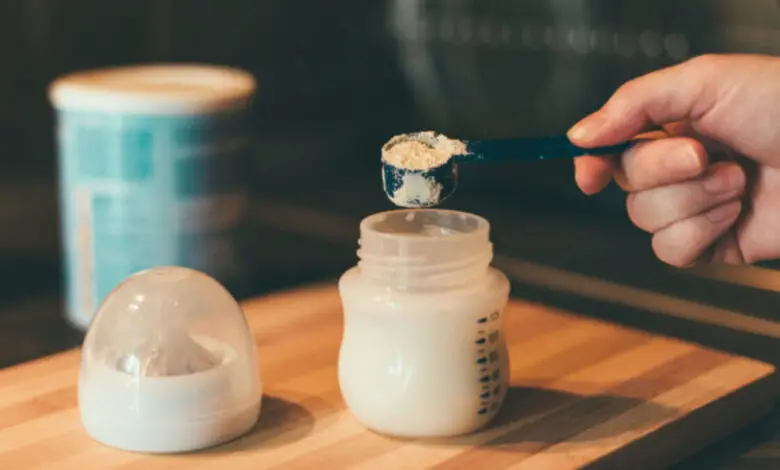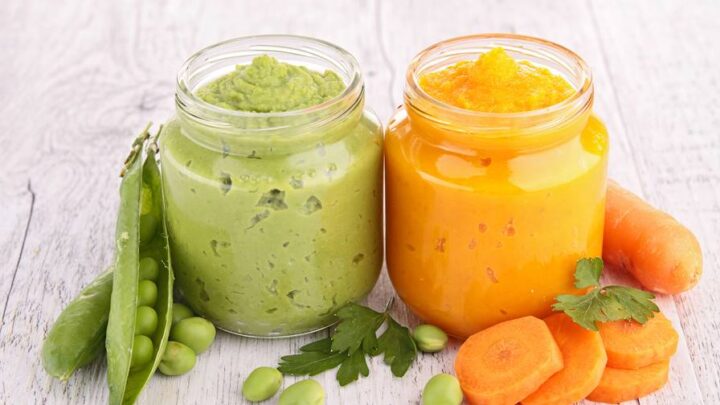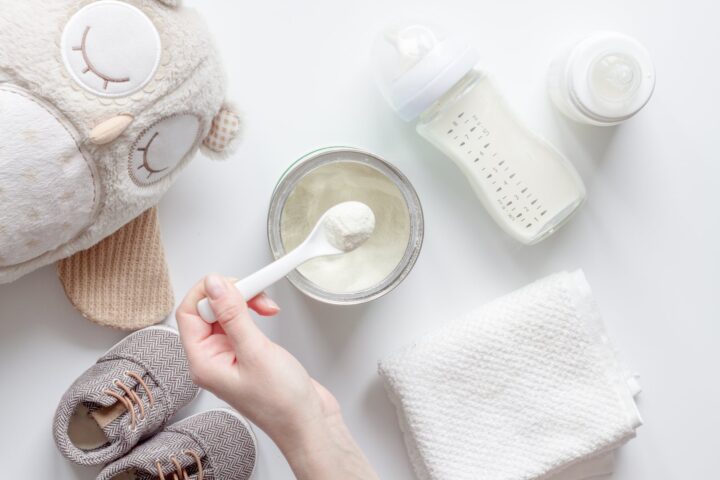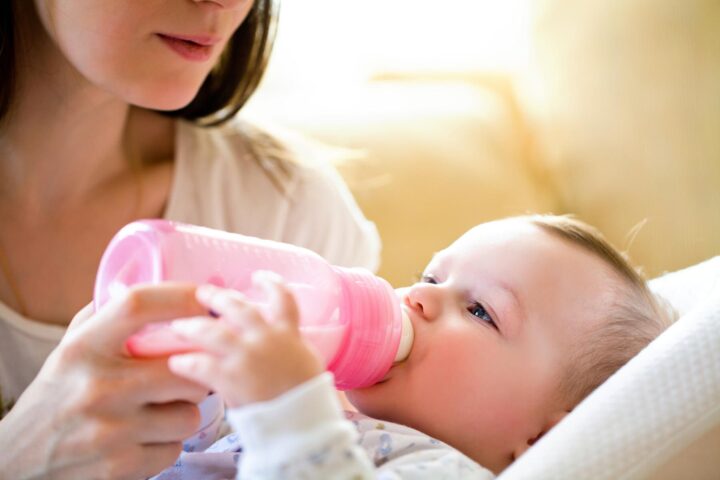
Surely every parent has seen jars or packages of baby food labeled “bio” or “organic” on the shelves of supermarkets or in online stores. Such labels mark organic food. What actually is organic food, and how to choose the safest baby formula?
Organic foods are natural products that have been grown or produced under safe, environmentally friendly conditions, without or with minimal (acceptable) use of fertilizers, pesticides, growth promoters, GMOs (genetically modified organisms), and food additives.
How is organic food different from non-organic food?

– It is strictly forbidden to add chemical flavorings, colorings, flavor enhancers, thickeners, preservatives, stabilizers, etc., to organic food during its production. The only exceptions are certain additives that are permitted by food standards.
– Organic foods may not be subjected to treatments such as carbonation, ultrasonic or radiation processing, chemical preservation, etc., because they significantly reduce the nutritional value of the finished product, in our case, infant formula.
– Organic food does not contain genetically modified components or their ingredients.
– Organic food must not contain agricultural products that have been grown near large industrial cities or have been treated with any chemical fertilizers or insect repellents during cultivation.
– Organic food has a higher nutritional value than non-organic food and also tastes different.
– Organic foods are high in fiber, micronutrients, and vitamins.
From the above, we can conclude that organic foods are those that have been grown naturally.
What products are considered organic?
Often, organic products are correlated with agricultural food. All organic food must be certified, whether it is grown by large farms or by a small private farmer.
If you think that only small farms can grow organic food, you are deeply mistaken. Because sometimes, a large industrial manufacturer can be a more reliable supplier than a small private farm. Due to the fact that large enterprises necessarily receive certificates of “organic” production, small companies may not provide the appropriate certification. Therefore, large farms that grow organic foods do not treat fields with chemical fertilizers and do not feed forbidden сattle feed, as their products are constantly tested, and not once time. Therefore, it is worth thinking carefully before giving preference to any producer or baby food brand.
The organic infant formula should have special signs on the packaging. These labels guarantee the compliance of specific products with the standard of organic agriculture. The Euro-leaf mark is a standard of the European Union, Bio-Germany, USDA Organic-USA, AB-France. For additional information, you can learn more here.
Organic baby food

Organic food in a baby’s balanced diet plays a fundamental role!
Every mom is very picky about the food her baby eats. And while the baby gets only breast milk, there are no nutritional issues. But from the moment the breastfeeding is finished, problems and disputes begin with the choice of nutrition. After all, every caring mother wants her baby to be healthy and full of energy.
A baby’s body is very vulnerable to the environment that comes into contact with it since it is still weak and defenseless. The infant’s skin, intestines, and lungs have a direct connection with the outside world. For example, a touch of the skin with the environment we can observe with our eyes. In case there are any irregularities in the contact of the intestines with the outside world, parents do not notice it immediately because they can manifest themselves through a weakened immune system (where frequent colds come from) or, for example, food allergies.
Non-organic foods can trigger some digestive issues because chemical fertilizers, growth regulators have been used in their cultivation. If an adult can not react to it in any way, a baby’s body is extremely sensitive to all these additives. Therefore, infant formula should include only organic ingredients.
Organic baby food brand

The most important external difference between organic and non-organic food is the appropriate label on the package, namely “organic” or “bio.” Such a label means that the food product has been made following the required certification, is recognized as organic, and received the appropriate certificate. So if you want to buy your baby organic food, look for this inscription on the jar or box.
You can find organic food produced by reliable manufacturers in today’s online stores and supermarkets. Unfortunately, there are not as many as we would like. One of them is HIPP, a reliable organic baby food brand.
This is a top European brand with an incredibly large range of baby food products. This manufacturer treats its products very responsibly, checking them at every stage of production. A balanced diet for the baby is most important, so even before the HIPP formula reaches the consumer, each box undergoes a final inspection to prevent the ingress of harmful ingredients. Milk for infant formula is from organic animal husbandry, which establishes animal housing and care rules and all pastures and soil conditions. The land on which organic farming is implemented is carefully selected and fertilized using only natural methods. In addition, HiPP farms prohibit the use of chemical synthetic plant protection products. The environmental performance of products is particularly high due to the use of hydroelectricity, solar energy, and biofuel obtained from organic waste from the farms. As a leader in environmental protection, Hipp conserves resources for the next generation. It develops recipes for baby food, carefully selecting the method and duration of heat treatment to ensure that all ingredients taste good and are safe even for babies prone to allergies.
The HiPP BIO label, which confirms compliance with the strict requirements of organic production, guarantees quality. It regulates even more factors than the EU BIO label, the quality label for organic products defined by European legislation.
You can check organicsbestshop.com for more information about this.

Organic infant formula contains the maximum amount of nutrients and vitamins necessary for the baby’s proper development. Parents should choose only quality baby food, carefully studying the information on the packaging, expiration dates, compositions, labels because even such a small sign as “bio” means so much for baby’s health!
When choosing baby formula, it is important to be guided by your pediatrician’s recommendations, who can help you choose the right set of nutrients for your little one.
Parents who understand the discomfort of gluten intolerance or celiac disease do not want their little one to have those same issues. Finding the perfect nutrition for your baby starts with ingredients that you trust to be safe, pure, and allergen free. With a little bit of research, finding the perfect nutrition is one click away.
